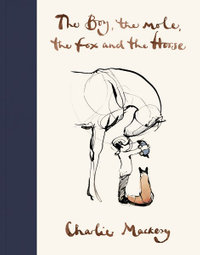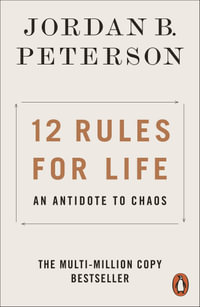How we treat animals arouses strong emotions. Many people are repulsed by photographs of cruelty to animals and respond passionately to how we make animals suffer for food, commerce, and sport. But is this, as some argue, a purely emotional issue? Are there really no rational grounds for opposing our current treatment of animals?
In Why Animal Suffering Matters, Andrew Linzey argues that when analyzed impartially the rational case for extending moral solicitude to all sentient beings is much stronger than many suppose. Indeed, Linzey shows that many of the justifications for inflicting animal suffering in fact provide grounds for protecting them. Because animals, the argument goes, lack reason or souls or language, harming them is not an offense. Linzey suggests that just the opposite is true, that the inability of animals to give or withhold consent, their inability to represent their interests, their moral innocence, and their relative defenselessness all compel us not to harm them.
Andrew Linzey further shows that the arguments in favor of three controversial practices--hunting with dogs, fur farming, and commercial sealing--cannot withstand rational critique. He considers the economic, legal, and political issues surrounding each of these practices, appealing not to our emotions but to our reason, and shows that they are rationally unsupportable and morally repugnant.
In this superbly argued and deeply engaging book, Linzey pioneers a new theory about why animal suffering matters, maintaining that sentient animals, like infants and young children, should be accorded a special moral status.
Industry Reviews
"[Linzey] brings fresh eyes to the tradition, discovers in it unexpected resources, and breathes new life into doctrines that have come to seem antiquated." --Commonweal
"Although a theologian, Linzey is clearly learned in moral philosophy. This ensures that a non-religious reader...does not feel excluded...Linzey's book provides a fine introduction to why animal suffering matters. It could, and arguably should, be utilised by universities, schools, and laypeople alike." --Times Higher Education
"A very compelling philosophical argument for the case for extending moral solicitude to all sentient beings...Far from being sentimental, [Linzey] demonstrates that a real concern for animals can be part of a radical expression of Christian faith." --Independent Catholic News
"Argues compellingly that concern for animals (chiefly mammals and birds) is not merely an emotional matter, but, rather, one that has firm rational basis, with concrete implications for human practice and social policy...The overall quality of the book...is excellent. Its seamless wedding of moral theorizing, cultural criticism, and political analysis is a paradigmatic example of how practical ethics ought to be done, and the power it might have in helping to
change ideas and institutions." --Journal for the Study of Religion, Nature and Culture
"The book is philosophically sophisticated without being excessively abstruse. It also engages in a serious way with what Christian thinkers and holy texts have said about animals, but without appearing relevant only to those who are committed Christians. It will thus appeal to a very wide range of readers...Linzey's book is a treat. It is written in a smooth and accessible style, and his arguments are, on the whole, lucid and powerful...Why Animal
Suffering Matters matters. It is a smart, sensitive book from which academics and non-academics, philosophers and non-philosophers, the religious and the non-religious, and those with passionate and casual
interests in animals, all will benefit." --Environmental Ethics
"A great resource if you're looking for an accessible and moderate introduction to a common sense and broad case for taking animal well-being and suffering seriously."--Not One Sparrow
"Andrew Linzey is virtually synonymous with the discipline of animal theology: a discipline that he has legitimate claim to have single-handedly invented. Therefore, we can safely say that a dearth of originality has never been among Linzey's faults. This book, I believe, ranks as one of his finest works--perhaps even the finest. It is original, engaging, and impressive, and comprises a skillful interweaving of theological and ethical argument, systematic
analysis, and (mercilessly destructive) criticism of hugely significant public documents on hunting with dogs, fur farming, and commercial sealing, underwritten by a form of Chomskyan social criticism."
--Mark Rowlands, Professor of Philosophy, University of Miami
"Philosophically astute, theologically sensitive, and eminently readable, the Reverend Professor Linzey's innovative thesis is that, far from grounding a secondary moral significance to animals, their (alleged) lakc of reasoning and linguistic capacities to argue for treating them with the care and concern that we extend to our very young. This is required reading for not only those interested in the plight of animals, but also for all who reflect upon how a
moral life should be lived." --Mark H. Bernstein, Joyce and Edward E. Brewer Chair of Applied Ethics at Purdue University

























